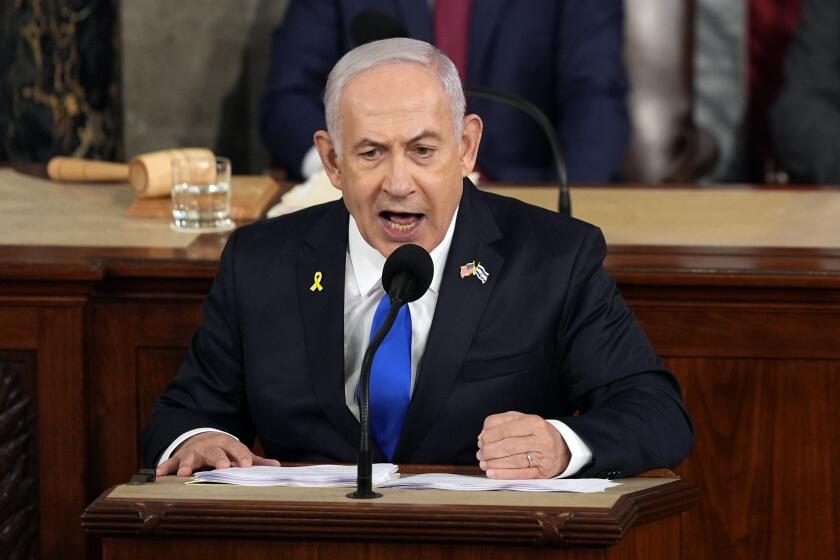Global treaty becomes showdown over future of Internet
Sharp divisions over the future of the Internet were laid bare Friday as the United States and many of its allies spurned a United Nations telecommunications treaty over fears of government meddling with the Web.
Getting involved with the Internet would mark a shift for the International Telecommunication Union, a U.N. agency first created to smooth the sending of telegraph messages from one country to another. With information already flowing freely over the Internet, Western countries and companies have questioned why the international agency should get involved.
Telecommunications talks in Dubai, United Arab Emirates, turned sour after nations including Russia and China hitched a nonbinding resolution to the treaty that referred to the Internet.
Mentioning the Internet, even in a nonbinding resolution, alarmed Western nations that fear it is the first step toward the ITU asserting greater control over the Web. On top of that, more debate erupted because the telecommunications treaty, which covers issues such as investment in communications, called for the regulation of spam, which free-speech groups fretted could be a “back door” to legitimize government censorship.
“Even something that sounds fairly innocuous gives you a lot of room to snoop around behind the scenes,” said Tom Lenard, president of the Technology Policy Institute. Though the treaty itself makes little mention of the Internet, the issue nonetheless became a sticking point.
Eighty-nine countries signed the agreement Friday in Dubai and 55 did not, including many that might approve it later. Even having to vote at all was unusual for the U.N. body, which normally strikes agreements easily by consensus. The snubbing by the United States, Britain and other Western countries is expected to dilute its global effect.
“This conference is not about governing the Internet,” said Hamadoun Toure, secretary-general of the International Telecommunications Union. In a statement Thursday, he stressed that the treaty did not cover “content issues,” the sort of censorship that Western nations have feared.
“The word ‘Internet’ was repeated throughout this conference, and I believe this is simply a recognition of the current reality -- the two worlds of telecommunications and Internet are inextricably linked,” he said.
As it stands, many countries already censor or manage the Internet: Iran has sought to create its own “national Internet” scrubbed of unwanted content; China regularly blocks search terms on a website similar to Twitter. Bringing the Internet into international law, however, could eventually pave the way for other countries to help them censor, one expert argued.
“Countries that wouldn’t usually invest the kind of resources that China has invested might regulate more content if international regulations say they should stop harmful traffic,” said Brett Frischmann at the Cardozo School of Law.
Even if that doesn’t happen, the rules could give repressive countries more cover for restricting the Internet, Lenard said. Though the agreement struck Friday has little language to that effect, critics say it could become the first step toward a tacit international stamp of approval.
Lost in the debate between Western ideas of free speech and advocacy for clamping down on it are a number of countries in the global south that feel alienated from the operation of the Internet, said Tim Maurer of the Open Technology Institute at the New America Foundation. The existing institutions that help organize the Internet are largely housed in the U.S. and Europe, Maurer said.
“It may be a good idea to reform that system to give more voice to countries in the global south,” said Danielle Kehl, also of the Open Technology Institute. But “it is inappropriate to do it through the ITU.”
The agreement takes effect in 2015, but similar debates are expected to surface at international meetings in the coming years. “These issues will keep being with us,” said Tracy Mitrano, director of the Institute for Computer Policy and Law at Cornell University. “This particular entity was so obviously a pretext for a much more important and impending debate.”
ALSO:
Hamas celebrates its 25th anniversary in West Bank
Israeli foreign minister resigns as criminal charges loom
Demonstrators in Egypt clash on eve of constitutional referendum
More to Read
Sign up for Essential California
The most important California stories and recommendations in your inbox every morning.
You may occasionally receive promotional content from the Los Angeles Times.









